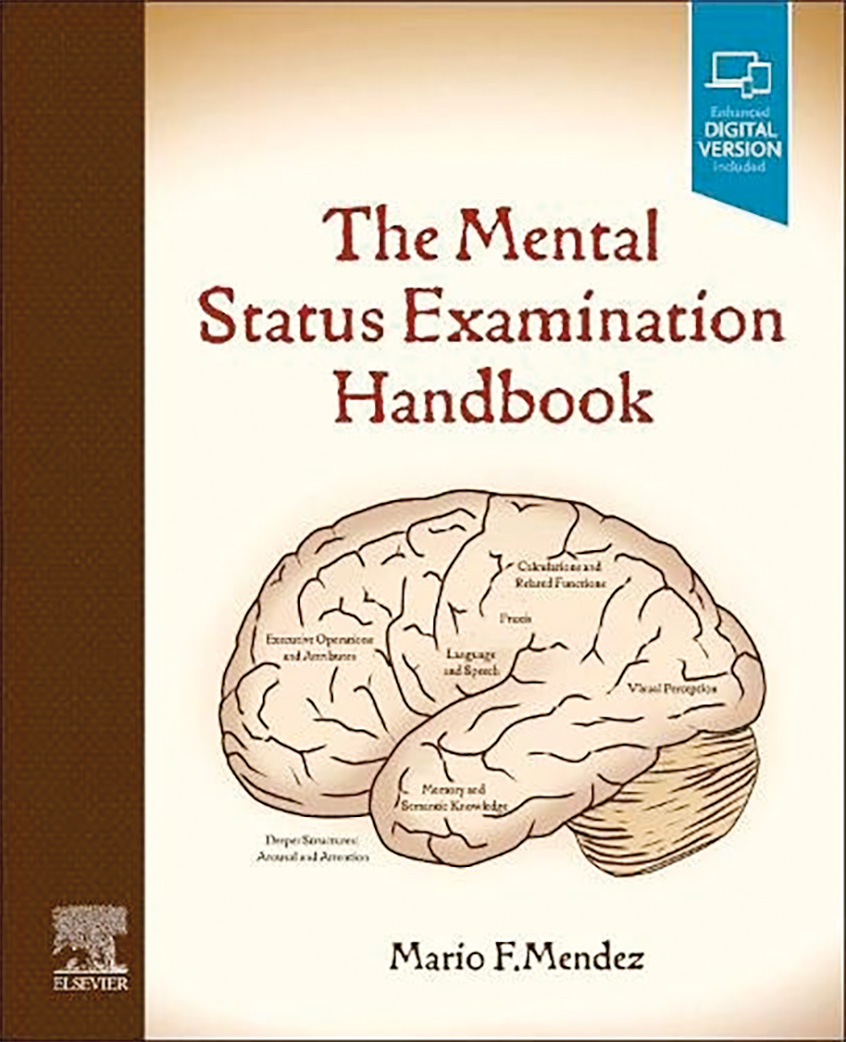I came across this book by chance when browsing in the Psychiatry section of a bookshop. Based on the title one can understand why it was shelved there (although the back cover helpfully lists neurology above psychiatry in the “Recommended Shelving Classification”) since, at least in the UK, mental status examination (which the author abbreviates “MSX”) is a core feature of psychiatric rather than neurological practice. However, this book is essentially about cognitive examination, as one might anticipate from an author who has made significant contributions in cognitive neurology over several decades. He may be familiar as the co-author with Jeffrey Cummings of Dementia. A clinical approach (Butterworth-Heinemann, third edition 2003).
After some general principles and essential neuroanatomy, the core of the book is devoted to “mental status” (= cognitive) testing ordered by domain: attention, language, memory, perception, praxis, and executive abilities. The emphasis is firmly on what can be achieved in the clinic and at the bedside, rather than by formal neuropsychological assessment. In this context, I found the author’s expositions on apraxia and on acalculia particularly masterful, reflecting many years of experience in assessing these constructs.
There then follows a section on cognitive scales and inventories, with brief descriptions of some of the most frequently used screeners (e.g. MMSE, MoCA), and a brief overview of what to expect from a neuropsychologist’s assessment. Finally, there is a chapter on “tele-neurobehavior” (a neologism?) looking at telephone screeners, both dedicated for this purpose and adapted from existing pen-and-paper screeners, which is most welcome in light of the changes in cognitive neurology practice enforced by the COVID pandemic and which may persist into the longer term.
The only comparable book I can think of is John Hodges’ Cognitive assessment for clinicians (sometimes colloquially known as “Hodgeography”) which appeared in 3 editions published by Oxford University Press between 1994 and 2018. The Mendez book has the potential advantage of being downloadable and searchable. There are some unfortunate typos, for example diagonistic and agonistic apraxia is garbled into “diagnostic and agnostic” (P128 and Index), although in the lengthy appendix which summarises mental status tasks this error is avoided (P235). My copious annotations suggest that the index is not adequate. Nevertheless, this is a very worthy volume which can be enthusiastically recommended for those beginning or refreshing their clinical skills in cognitive neurology.

